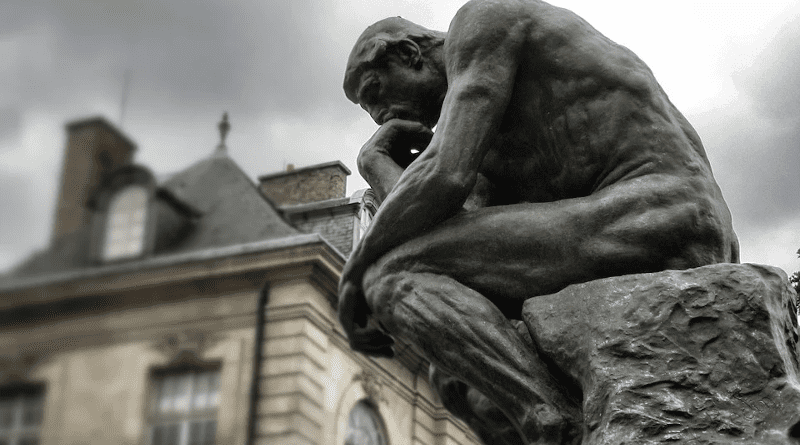The Pulsating Heartbeat of ‘I Think, Therefore I Am’ – OpEd
In the labyrinth of philosophical inquiry, the words of René Descartes resonate with timeless vigor: “I think, therefore I am.” These succinct syllables encapsulate the very core of existence, beckoning us to explore the profound interplay between consciousness and being. Let’s embark on a journey through the corridors of contemplation, untangling the threads of this iconic maxim.
Descartes, a luminary of the 17th century, aimed to forge an unassailable foundation of knowledge through methodical doubt. In his declaration, thinking emerges not merely as a cerebral exercise but as the pulsating heart of our existence. “I think, therefore I am” asserts itself not as a passive statement but as a rallying cry for the power of cognition in shaping our reality. Envision the mind as a dynamic canvas, where thoughts are not mere brushstrokes but vibrant notes in a symphony of existence.
Descartes positions thought as the conductor orchestrating this intricate composition. Each mental note resonates through the corridors of consciousness, creating a rich and multifaceted melody that defines our very essence. This philosophical insight transcends individual introspection, resonating as a call to recognize the transformative influence of our thoughts on the world. Like ripples expanding across a tranquil pond, our cognitions reverberate through the fabric of reality, leaving an indelible mark on our perceptions and actions.
Descartes’ maxim, far from a static proclamation, becomes a dynamic force shaping the trajectory of intellectual exploration. From the scientific revolution to the Enlightenment, the torch of reason carried forth by subsequent thinkers illuminates the vast expanse of human understanding, each mind contributing to the symphony of thought.
In the realm of artistic creation, “Cogito, ergo sum” serves as a creative anthem. Writers, poets, and artists draw inspiration from the pulsating core of thought, breathing life into characters, narratives, and masterpieces. Through the act of creation, they affirm their existence, imprinting their unique essence upon the collective canvas of human expression. Descartes’ audacious declaration invites us to traverse the labyrinth of introspection actively.
“I think, therefore I am” challenges us to engage with the intricate dance of thought, fostering courage and curiosity in the face of philosophical inquiry. It is an invitation to question, doubt, and, in doing so, affirm our existence through the very act of intellectual exploration. As we navigate the symphony of existence, let Descartes’ maxim be our guiding melody. Revel in the intricate dance of thought, recognizing its transformative power.
“Cogito, ergo sum” stands not as a clichéd refrain but as a timeless reminder that within the realm of thought, we unearth the essence of our being.

